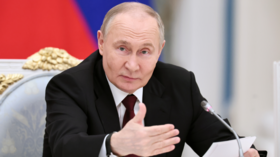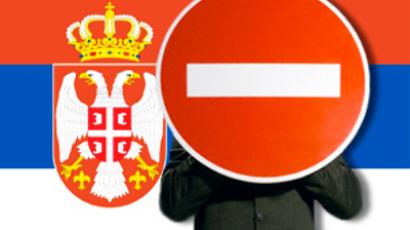Georgian troops readied for Afghan mission
In Georgia, NATO-led military exercises are preparing troops to operate in Afghanistan. The first Georgian soldiers head to the conflict zone within weeks.
Active Duty pay in a combat zone? Around $1,500 per month. Helping your country enter NATO? Priceless! This seems to be the message the Georgian government is sending to those in its army who will head off to fight in Afghanistan. Are people’s lives in Georgia being used as a bargaining chip to join NATO?
American instructors are in the country for a two-week-long military exercise, code-named “Immediate Response”, to prepare Georgian troops to serve in one of the most dangerous conflict zones in the world.
The cost of a “NATO dream”
Senior Lieutenant Zurab Kobaidze, who spent more than five months fighting in Afghanistan in 1988, admits that to this day the memories continue to haunt him. He’s wary of Georgian participation in the US-led operation.
”I seriously doubt that this thing will be over anytime soon, because Iraq is Iraq and Afghanistan is Afghanistan,” Kobaidze said.
”I’m pretty sure the Americans will get bogged down there. But they are smart. They realize this is going to cost them a lot of money. Every day they are spending lots of dough on it”.
Major-General Kote Shavishili was wounded in the Soviet-Afghan War and he knows the difficulties of fighting in the country first-hand.
”When you go to war for the first time it’s partly youthful vigor, partly patriotism,” Shavishvili believes.
“But after you’ve gone through with it, you ask yourself: what was I fighting for? What’s the purpose?”
The purpose, according to Tbilisi, seems to be showing Georgia’s willingness to undertake any task to become a fully-fledged North Atlantic Alliance member, despite being refused a membership action plan in 2008.
What will Georgia gain in return?
Some in Georgia, like the Conservative Party member Kakha Kukava, are already starting to question NATO’s promises of help which they have issued before.
“If Georgia [only] sends troops to Iraq, to Afghanistan, and NATO [doesn’t] participate in anything for Georgia, of course it’s not fair,” Kukava noted.
Tbilisi plans on sending an infantry company to Afghanistan by the end of this year, following up with an infantry battalion in the spring of 2010.
Georgia had previously deployed two thousand of its troops to fight in the US-led coalition in Iraq. And now it is rushing to help out Washington in a war that has been going on for eight years with no foreseeable conclusion.
“Americans always like to pull chestnuts out of the fire with someone else’s hands,” said Viktor Litovkin, Editor-in-Chief of the Independent Military Review.
“And we know that there are NATO members involved in Afghanistan, out of which several hundred soldiers have been killed. Americans choose more peaceful zones for their troops,” he added.
Most in Georgia see this as a chance for the troops to gain training and expertise in upping their military might after last year’s conflict between Georgia and South Ossetia, and get one step closer to becoming a North Atlantic Alliance member. Many believe sending troops to help out the Americans in Afghanistan is a sure-fire way to prove that they’re NATO-ready.
But the question is whether the end result in this case really justifies the means, as the country’s NATO membership dream would cost Georgian soldiers their lives.












